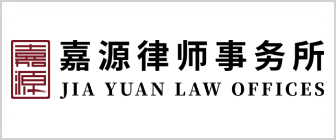Liu Yue, Sun Jie and Zhou Qian of Jia Yuan Law Offices in Beijing look at outbound investment structures
In recent years, with the driving of Going out (Zou Chu Qu) policy, China’s outbound investment has witnessed rapid development. One of the challenges Chinese enterprises face when making outbound investment is the financing structure. This article is intended to introduce the overseas financing structures usually adopted by Chinese enterprises and their corresponding regulatory policies with the purpose of helping Chinese enterprises in regard to overseas financing and outbound investment.
Overseas financing structures
In practice, there are two categories of overseas financing structures, one of which is directly supported by a parent company and the other one is directly supported by a bank.
(i) Overseas financing directly supported by a parent company
a) Keepwell Deed
In order to increase the creditworthiness of its overseas subsidiary, a parent company may sign a Keepwell Deed in which the parent company undertakes to ensure that its overseas subsidiary (borrower) remains solvent and has sufficient liquidity to repay the interest and principal of the loan. However, under the Keepwell Deed the parent company usually does not undertake to repay the loans for the benefit of the bank. Sometimes, a parent company may undertake to provide loans to its overseas subsidiary when there is a fund shortfall of such subsidiary.
b) Equity Interest Purchase Undertaking (EIPU)
Under EIPU, a parent company typically undertakes an obligation to purchase the equity interest or assets of its overseas subsidiary (borrower) for a price which is sufficient for the repayment of the loans so that the borrower can repay the loans using such purchase price.
c) Parent guarantee
Parent guarantee is a typical guarantee under which a parent company makes a written and legally binding guarantee to a creditor (bank) which provides loans to its overseas subsidiary and undertakes to fulfill relevant payment obligations of its subsidiary in accordance with the guarantee contract. Such a structure is known as Nei Bao Wai Dai.
(ii) Overseas Financing directly supported by a bank
Under the Nei Bai Wai Dai structure, it is also possible to arrange a guarantee provided by a domestic bank rather than the parent company. Usually the domestic bank will require the parent company to provide a guarantee for the benefit of the domestic bank.
Regulatory policy
In accordance with Notice of the National Development and Reform Commission on Promoting the Reform of Management of the Record-filing and Registration of the Off-shore Debt of Enterprises (Fa Gai Wai Zi [2015] No.2044), mid-to-long-term (more than one year) international commercial loans of Chinese enterprises and their controlling overseas subsidiaries and branches which are denominated in RMB or foreign currency shall be registered and filed with the National Development and Reform Commission (NDRC).
According to the Foreign Exchange Regulation on Cross-border Guarantee (Hui Fa [2014] No.29), Nei Bao Wai Dai shall be registered with SAFE. Under the Nei Bai Wai Dai structure, if the guarantee is provided by the parent company, then such parent company shall register the Nei Bao Wai Dai with local SAFE within 15 working days after the conclusion of the guarantee contract; if the guarantee is provided by a bank, the bank will report the Nei Bao Wai Dai to SAFE via data interface programs or by other means, the parent company itself does not have to go through the Nei Bao Wai Dai registration.
Usually Keepwell Deed and EIPU are used together. It is controversial as whether the Keepwell Deed and EIPU constitute a guarantee under Hui Fa [2014] No.29. Usually there is no direct payment obligation of the parent company under Keepwell and EIPU. It is suggested to consult with the local SAFE in advance regarding whether the Keepwell Deed and EIPU shall be registered to avoid the potential regulatory risk.
Above are the overseas financing structures which are usually used for outbound investment of Chinese enterprises.
Please kindly note that the financing structure may be chosen based on other elements like cost of financing. This article is a preliminary introduction of the relevant structures for the Chinese enterprises to consider.
Liu Yue
Partner
Jia Yuan Law Offices
Beijing
Sun Jie
Partner
Jia Yuan Law Offices
Beijing
Zhou Qian
Senior Associate
Jia Yuan Law Offices
Beijing
About the authors
Liu Yue, Sun Jie and Zhou Qian have been working on cross-border transactions in various business sectors in all the major jurisdictions across the world, e.g. the US, major European countries, South Africa, Zambia, Angola, Indonesia, Malaysia, etc. They have frequently advised clients on the transaction structure, contract negotiation, financing structure, etc. related to the outbound investment and have gained rich experience in this area.


